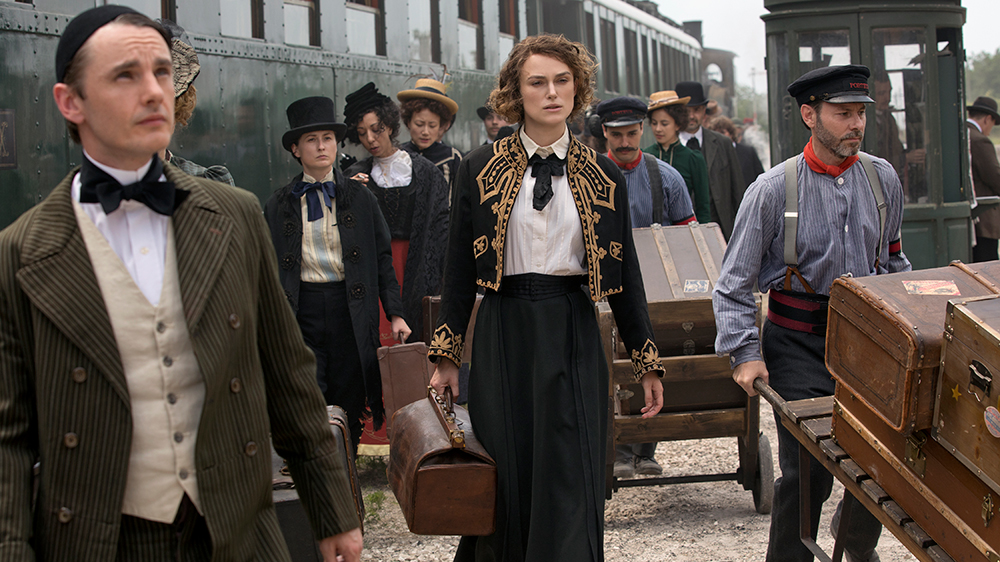Bold Films’ Walters Talks About Forces Changing Indie Market
By Gregg Goldstein
LOS ANGELES (Variety.com) – Producer/financier Bold Films made its mark in recent years with critical and commercial indie hits like “Whiplash,” “Drive” and “Nightcrawler.” Its co-founders — Russian-born entrepreneur, chairman and backer Michel Litvak and CEO Gary Michael Walters — hope to achieve similar results with the just-released art-house drama “Colette,” pictured above, and A24’s recent pickup “Vox Lux” (out Dec. 7). But after some low-budget misfires and downsizing, the company is looking to take bigger gambles. Variety spoke with Walters to discuss Bold’s new direction.
How are you planning to change the company’s approach?
We’ll be looking into getting domestic distribution earlier in the process, and creating more commercial projects that are going to be attractive as wide releases. We’ll give them some edge, but I think of it as the “Mary Poppins” principle: you need a spoonful of sugar to help the medicine go down. More accessible films, maybe with more action components, in more commercial genres. These are the things that we think [theatrical] audiences are still responding to. The big, four-quadrant movies we’ll leave to the studios. There’s always got to be something intriguing and elevating about them — otherwise, the studios would be doing them. We want to keep doing pure dramas, but the marketplace for them has shifted more to television, so we’re probably going to be leaning into that [as part of our] TV strategy.
What types of films and budgets are you exploring?
Budgets that are $35 million-$40 million. We’re very keen on our Chippendales project with Dev Patel and Ben Stiller attached. That’s not as big and broad as an action movie, but it will have a lot of entertainment value with the male dancing and big disco anthems, surrounded by this amazing, dark thriller component based on a true story. And we have a great project that we’re developing with Reese Witherspoon’s Hello Sunshine about Ruth Handler, the woman who created Barbie and co-founded Mattel. It’s a great women’s empowerment story, but it’s also got the global brand of Barbie, so there’s a marketing component that makes it accessible to a broader audience.
You’ll be on the Nov. 4 AFM panel called Producing Studio Films With Independent Budgets. How are you approaching your partnerships with studios?
Studios earn distribution fees, and Bold pays them. So we can’t afford to debt that 35 percent, or whatever the studios charge. That means we have to make the movies more economically, and in 35-40 days, not 50-80 days. They’re not necessarily gonna get rich, but everyone can make a good sum while making great movies.
Last year, Bold laid off almost half its staff. What led up to that decision?
We have had one owner since the inception, Michel Litvak, and he said that he wanted to tighten the overhead. It’s something that’s happened before — we pruned it down to build it back up. We’re leaning into a very aggressive slate right now, so we still have all of our strong department heads. We have less staff, and we’ve shut the London office, but I’m covering London as part of my regular duties now and enjoying it greatly.
How is this affecting your output?
In some respects, it’s easier to make two $30 million movies than six $10 million movies. There are only so many [films like] “Nightcrawler” and “Drive” out there. And there are only so many [films like] “Chippendales” and [our Dave Bautista-toplined action comedy] “Dogtown.” There are fewer packages around, and far fewer great spec screenplays. Writers are being absorbed by TV, so it’s become more challenging to get great scripts that will attract cool directors and movie stars. That’s why development has become more important for us. And if you’re gonna home-grow it, you might as well grow where the buyer and audience demand is higher.

